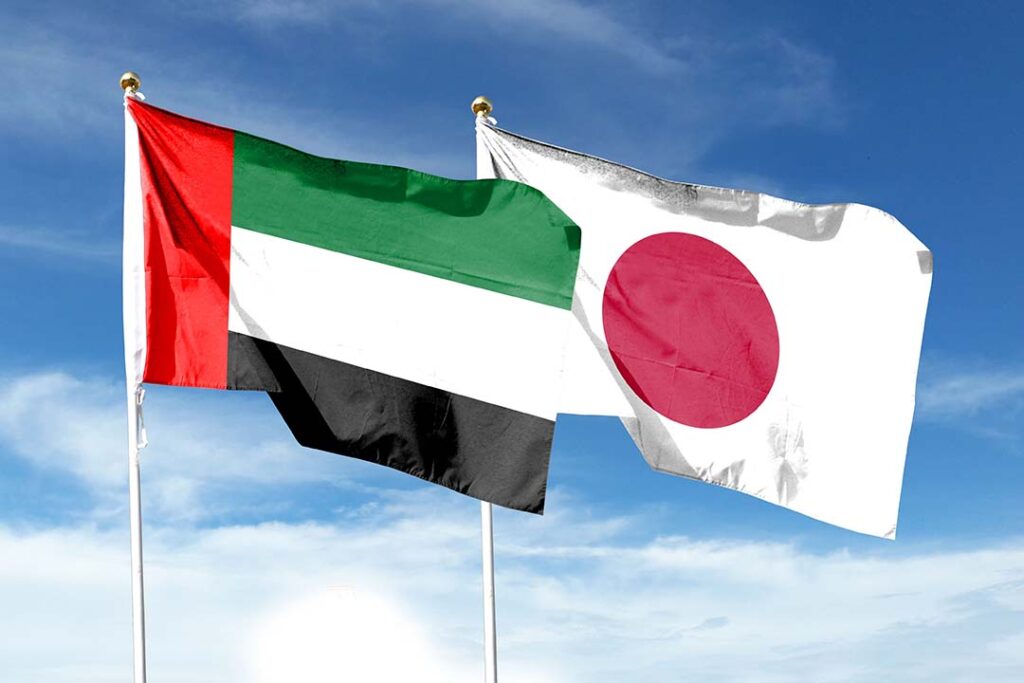Amid rapidly shifting global economic currents, Indonesia and Japan have emerged as key navigators, steering the course toward a new regional order in the Indo-Pacific. Their dynamic partnership, built on decades of diplomatic engagement, has recently expanded beyond traditional sectors to embrace cutting-edge fields such as artificial intelligence, renewable energy infrastructure, and maritime security cooperation. As both nations navigate complex challenges, from climate vulnerability to supply chain resilience, their collaborative approach charts a course for sustainable development across Asia.
In a recent meeting with Bridges Magazine, Japanese Ambassador to Indonesia Masaki Yasushi discussed Japan’s ongoing investment in Indonesia’s growth, its contributions to infrastructure and industrial development, and the expanding areas of cooperation in defense and maritime security. Ambassador Yasushi also emphasized the importance of Japan and Indonesia strengthening their collaboration to bolster global stability and regional economic resilience.
Bridges: Japan and Indonesia recently celebrated 65 years of diplomatic relations and upgraded their partnership to a Comprehensive Strategic Partnership. What does this mean for the future of bilateral cooperation?
Masaki Yasushi: The strength of Japan-Indonesia relations is reflected in our growing economic, political, and cultural collaboration. In 2023, we celebrated 65 years of diplomatic relations, and that year, the two countries upgraded their relationship to a Comprehensive Strategic Partnership. This signifies our commitment to deeper engagement in trade, defense, infrastructure, and sustainability. Now, my task is to ensure that we concretize this strong relationship across various areas—economic, political, and cultural.
The Indonesia-Japan Economic Partnership Agreement (IJEPA) has been an important framework for trade. What benefits will the recent amendment protocol bring to both countries?
IJEPA has been a cornerstone of our trade relationship since 2008, facilitating smoother economic exchange between our nations. The amendment protocol, signed in 2024, introduces gradual tariff reductions on steel and automotive products, making it easier for Japanese businesses to expand in Indonesia. Similarly, Indonesian exports to Japan—such as canned tuna, bonito flakes, and tropical fruits like pineapples and bananas—will see improved market access.
Beyond trade, the Amendment Protocol of the IJEPA will have updated provisions on for human capital exchange, expanding the stay period for Indonesian caregivers and skilled workers in Japan. We have increased the stay period for Indonesian caregivers from three to five years, improving their ability to contribute to Japan’s workforce.
The strength of Japan-Indonesia relations is reflected in our growing economic, political, and cultural collaboration.
Masaki Yasushi, Japanese Ambassador to Indonesia
Japan has been a key partner in Indonesia’s infrastructure and industrial development. What recent progress has been made in this area?
Our cooperation in infrastructure is one of the most visible aspects of Japan-Indonesia relations. Japan has long supported Indonesia’s infrastructure development, from the MRT system to industrial parks and manufacturing hubs. The successful completion of the Jakarta MRT is a major milestone, and we are now working on expanding the network with an East-West line.
Additionally, Japan is investing in transportation hubs such as Patimban Port, which will enhance Indonesia’s role as a regional export hub. We are working with Indonesia to develop Patimban Port into a major export center, particularly for the automotive industry.
What new areas of cooperation are Japan and Indonesia exploring beyond traditional sectors?
One of the most important new areas of collaboration is defense and maritime security. Japan and Indonesia face similar maritime challenges, and we are strengthening cooperation in ensuring freedom of navigation and maritime security. Japan has already supported Indonesia’s coast guard capabilities by technical assistance, and is going to grant a large patrol vessel after about three years.
Furthermore, Japan’s new Official Security Assistance (OSA) program will allow for greater defense collaboration, including joint training exercises and technology sharing. This year, Japan and Indonesia agreed to cooperate under the OSA framework, marking a new phase in our security relationship.
Our partnership is not just about diplomacy but about building a future of shared prosperity, innovation, and security. As Japan and Indonesia continue to deepen their ties, we look forward to new opportunities that will benefit both nations and contribute to regional and global progress.
Looking ahead, what are the biggest opportunities and challenges in Japan-Indonesia relations?
As we move forward, Japan and Indonesia must continue strengthening economic integration while also addressing geopolitical uncertainties. Indonesia is one of the leading countries of the Global South, and its leadership in ASEAN makes it a key player in shaping regional stability. With increasing global challenges — from supply chain disruptions to energy security — our two countries must work together to promote a free and open regional order.
Looking ahead, I see significant opportunities in energy transition, technology transfer, and human capital development. Over 150 projects under the Asia Zero Emission Community (AZEC) initiative are already underway in Indonesia, focusing on geothermal power, waste-to-energy solutions, and sustainable urban development. Additionally, Japan is committed to supporting Indonesia’s efforts in food security, fisheries development, and education exchange programs.
Our partnership is not just about diplomacy but about building a future of shared prosperity, innovation, and security. As Japan and Indonesia continue to deepen their ties, we look forward to new opportunities that will benefit both nations and contribute to regional and global progress.
From infrastructure and trade to defense and sustainability, Japan and Indonesia’s Comprehensive Strategic Partnership is evolving to address emerging economic and geopolitical challenges. With expanded market access, stronger security cooperation, and increased investment in green energy, the two nations are poised to lead regional development and global stability together.










